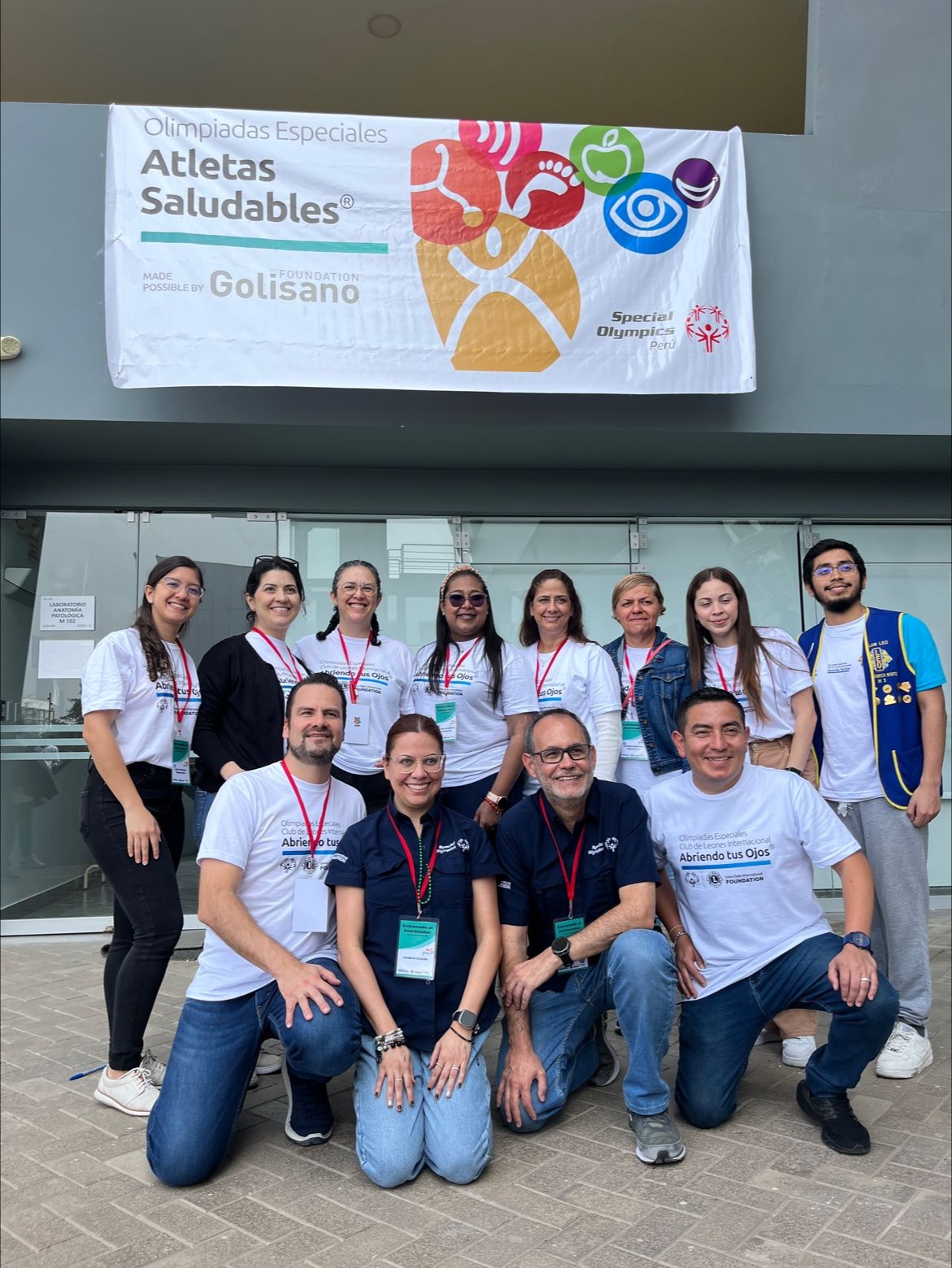
Special Olympics
CA4 – Europa
Ecuadorian pioneer has brought improved eye health and vision care to Special Olympics athletes for over two decades thanks to support of Lions Clubs International Foundation
The city of Cuenca, situated in the Ecuadorian Andes at an elevation exceeding 2500m, is celebrated as a UNESCO World Heritage Site due to its cultural and historical richness. Despite its recognition, many are unaware that Cuenca also holds significant importance in the Special Olympics movement.
This picturesque city staged the inaugural ‘Opening Eyes’ event in South America in 2001, which was also the first international screening supported by the Lions Clubs International Foundation.
The success of this event can be largely attributed to the pioneering efforts of Dr. Carlos Chacón, who played a crucial role in organizing it during his home National Games.
“I was lucky to be selected to the first Opening Eyes program outside USA. The engagement allowed me not only to learn from seasoned professionals but also to actively participate in screening the vision of the Special Olympics athletes. Wth the support of Paul Berman, Sandy Block, Bob Sanet, Susan Cooper and David Evangelista, this volunteering experience reinforced my commitment to being a positive force in their journey to better vision.”
Chacón first embarked on a transformative journey to bring improved eye health and vision care to the global population of individuals with intellectual and developmental disabilities in 1997. Upon accepting the invitation to be trained as a Clinical Director for the Special Olympics Lions Clubs International Foundation Opening Eyes program, he took part in an innovative clinical training program in Sevilla, as part of the Special Olympics Spain National Games, marking the beginning of his impactful involvement.
Two years later, through the leadership of Special Olympics Ecuador, Chacón became the first Clinical Director in Latin America to take the global effort forward.
Chacon expanded his knowledge across his country, including some remote areas. Throughout the following two decades, his dedication remained unwavering. The support of Lions Clubs International Foundation has been instrumental in this journey.
Chacón said: “In the first event, Lions Clubs supported us with volunteers and they have always been ready to collaborate with their volunteers to support us on the days when we need to evaluate the athletes. Many of the volunteers show their vocation to serve regardless of the physical efforts that this task requires.
“With respect to their financial support, I believe it was fundamental for the Opening Eyes program to reach many athletes and I believe that this motivated other health areas to do the same; to look for sponsors to help with the solution of athletes’ health problems.”
Since 2003, the Monterrico Norte Lions Club in Lima, Peru, has also been a steadfast partner of Special Olympics and of Chacón, who exported his knowledge to other Latin American countries. They have not only provided volunteers during events but also supported the provision of prescription glasses to athletes at no cost. Their commitment ensures a seamless experience, guaranteeing that athletes receive quality services.
Looking ahead to the Special Olympics Latin American Games 2024 in Asunción, Paraguay, Chacón expresses confidence in the local team’s ability to organize the Opening Eyes program.
Chacón added: “In Asunción, my expectation is to identify new clinical directors for several countries in South America and to be able to replicate this initiative in each of their countries in order to achieve a greater number of athletes.”
As Chacón continues to make strides in vision care for Special Olympics athletes, his legacy always stands as a testament to the power of collaboration and the transformative impact that one individual’s dedication can have on the lives of many.
“As an eye care professional, Opening Eyes has allowed me to develop skills when interacting with people with intellectual disabilities, which you learn very little or nothing about at University. In the human aspect, it is our social responsibility to help many athletes who require our skills to have quality vision in case they need it.”
